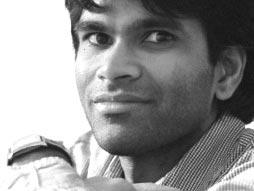
Why you should listen
To study big questions such as "What are the measurable effects of corruption?"" Sendhil Mullainathan and his collaborators look at the day-to-day decisions made by real people, running deep-data studies on groups around the world to tease out patterns. Awarded a MacArthur ""genius"" grant in 2002, he has produced and collaborated on a string of research papers that make for a must-read CV -- including a fascinating, if dispiriting, study of the corruption involved in getting a driver's license in India.
Lately he and his team have been studying women who sell fruit and vegetables on the streets in developing countries. They're usually in debt to a moneylender in the market, who takes about half their profits each day as interest. Some of the women have figured a simple way to get out of debt and keep all their profits. But most of the women make a choice every day that keeps them in debt. How would these businesswomen behave, he wondered, if the slate was wiped clean? So he got a grant, paid off their debt, and waits to see what happens next."
What others say
“R&D in the poverty space has huge potential returns and there is too little thinking about that.” — Sendhil Mullainathan
